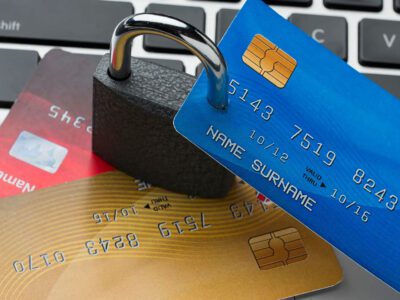
It’s not surprising if you’ve been experiencing increased anxiety lately. There’s a lot of chatter about the dreaded R-word: recession. The stock market has had some particularly bad days recently, and tariff-induced trade conflicts have flipped the world upside down. How can you stay calm in this volatile, unpredictable economy?
“Uncertainty might be unsettling, but there will always be things beyond our control in life—it’s vital to focus on the ones you can manage. Being reactive is the worst thing you can do with your cash. Being unprepared, without a plan in place, can expose you to financial difficulty and suffering, and the solutions available will most certainly be considerably more expensive and painful,” says Jordan Banning, a certified financial planner and founder of Crafted Financial Planning.
A crash course in properly navigating this economy may be exactly what you need. Inhale, exhale, and listen to what the experts have to say.
Press the pause button.
“The first and most important step is to reduce discretionary spending. Immediately. Jennifer Kirby, co-founder of Talisman Wealth Advisors, says, “Not forever, but for right now.”
She adds that she’s not talking about Starbucks lattes but rather bigger-ticket items like trips, extra things you don’t need, eating out frequently, needless or underused subscriptions, etc. “If it isn’t delivering something you need now, I suggest you pause it,” Kirby warns.
Review your budget.
Know where your money goes. “Take your last three months of bank and credit card bills and categorise your expenditure into three categories: needs, wants, and likes. “That is your road map,” explains Stewart Willis, president of Asset Preservation Wealth & Tax.
Then he suggests prioritising and trimming the fat. In this economy, many “wants” should take a back seat.
“The key to budgeting right now is flexibility. I follow the 50/30/20 approach with my clients (50% needs, 30% wants, and 20% savings), but we make adjustments based on individual situations. During difficult times, it can be more like 70/10/20, which is fine, according to Andrew Lokenauth, founder of TheFinanceNewsletter.com.
Examine your budget in extreme circumstances. “Execute a what-if scenario. What if petrol costs rise? What if your rent rises? “Building flexible spending zones into your budget now will help you stay calm later,” says James Francis, CEO of Paradigm Asset Management.
Expect the unexpected.
If there was ever a time to have an emergency fund, it is now.
“When the economy gets unstable, cash reigns supreme. Create your emergency fund. If necessary, pick up a weekend job or side hustle. “The goal is to give yourself breathing space,”
Aim to have enough cash to cover three to six months of spending.
Pay down debt.
Plan to pay down or pay off high-interest debt to maintain a high credit score. “With the ever-changing credit market, you will want to have and keep your credit score high so that credit will be available to you if you need it,” explains PenAir Credit Union’s community education development expert, Casey Brueske.
With average credit card interest rates of around 22%, monthly interest charges and payments become much more difficult during an economic downturn, especially if you’ve lost your work or aren’t obtaining as many freelancing gigs as you once did. Missed payments might harm your credit score. Ideally, if possible, avoid debt.
Avoid making costly mistakes.
When the economy is in turmoil, mistakes can have far-reaching implications. Continue investing. “Do not withdraw everything from the market out of fear. According to Lyle Solomon, a lead attorney with the Oak View litigation Group, which specialises in debt and consumer litigation, recoveries typically occur after downturns. Understand the consequences of panic selling. “Locking in losses during market dips is the best way to derail your long-term financial health,” according to Solomon.
If you need to reduce your donations temporarily, do so—but don’t stop them entirely, if possible, adds Solomon.
You do not want to quit saving, either. Make your funds easier to manage by automating them. Even $20 every week builds momentum and helps you feel less anxious about your finances.
Lokenauth adds, “Here’s something counterintuitive: don’t stop investing in yourself. One of my most successful clients enrolled in a coding bootcamp during the recent downturn. She quadrupled her income six months later. Smart upskilling can yield tremendous returns.”
Don’t assume you have to go it alone. Use the free financial counselling resources provided by charities and banks.
The takeaway
According to Solomon, “Tough economies test your financial discipline, but they also provide opportunities for smart, steady moves that pay off later.” Control what you can, avoid rash decisions, and maintain flexibility.”















